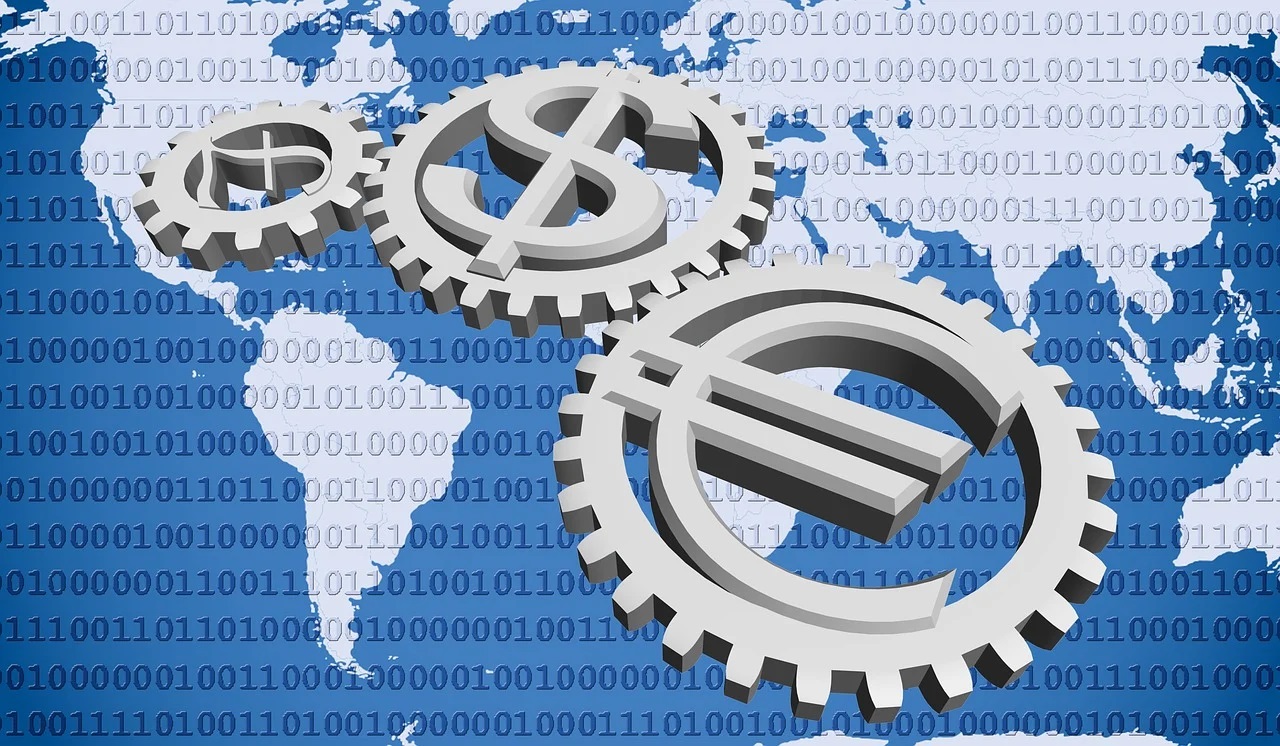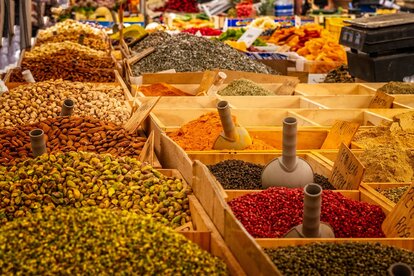2024 ECONOMY
The Mediterranean between uncertainty and hope

After overcoming a year of continuous shocks in 2023, the world continues to change at an accelerating pace, driven by technological progress, geopolitical factors, climate change, protectionism and the effects of the pandemic. The latest indicators are shaking economies, such as inflation at a 30-year high. All these uncertainties impact the economy and influence the decisions of companies and investors.
We are entering a period marked by political, social, economic, and financial uncertainty and instability and by enormous challenges. In the Mediterranean, countries and companies must rethink their current policies and create an ecosystem that allows both society and the economy to thrive in both domestic markets and international trade.
1.1 trillion annually, intra-Mediterranean trade is barely a third of overall trade between the Mediterranean and the rest of the world and contrasts with other prosperous regions, where the main partners are often neighbours. Exports are most competitive when countries export together, taking advantage of differences in skills, labour, resources, and industrial clusters to synergistically produce better products faster and more efficiently.
Economic data have many options for improvement. The external trade of the Mediterranean countries represents almost 45% of the Gross Domestic Product (GDP), but one third is energy. The 10 countries of the South and East are the second largest trading partner of the European Union (EU) but receive only 12% of EU exports. Exports basically come from only five countries: Italy, Germany, France, Great Britain, and Spain. Investments among Mediterranean countries amount to approximately 200.19 billion euros.

Spices market, Morocco.
© PixabayRegionalisation has improved economic competitiveness and prosperity in other parts of the world; it could do the same between the Mediterranean and the EU. The Mediterranean has been an active and vibrant trading area for millennia. Its location in the world is strategic, between Africa, Asia, and Europe, and it must have the ambition to become a key player on the international stage.
The Mediterranean faces the same challenges as other areas of the world and businesses and governments must react together by diversifying economies, avoiding dependence on tourism, choosing projects that do not hinder future growth and taking advantage of opportunities such as the location between three continents, new technologies, human resources, common heritage to face common problems.
Regional integration is the path to sustainability and survival. The Mediterranean region can be transformed into an international hub for manufacturing and assembly from which to access Africa, Asia, and Europe, and influence global markets, place the region on the world stage, attract more investment and stimulate other industrial sectors. Focus on efficiency in supply chains, for example, develop the electric and sustainable car, and take advantage of opportunities and expertise to face competition.
A possible integration would attract international companies and create tens of thousands of jobs in an area where unemployment is reaching worrying levels. It could earn each country in the region an annual increase in exports of 1-3% of GDP.
Time is valued in a new way. Factories thousands of kilometres away can mean lost sales at a time when the consumer wants fast delivery. Remote production is affected by errors and problems in supply chains, conflicts and insecurities or climatic disasters.

Green Energy
© PixabayPolitics reflects these concerns and influences new trade agreements by defending national security and managing trade ties. But the path is obvious and consists of selecting the right tools, the right priorities and implementing them efficiently together in a clearly interlinked region.
Another unique opportunity to engage the countries of the region in a comprehensive strategy arises from the need to provide an adequate and increasingly clean and renewable energy supply to the entire region. Also, to foster a new development model based on driving digital, green and blue. And taking climate change seriously. By focusing on sustainability in the tourism, agricultural, textile, automotive and logistics sectors.
The Mediterranean region can become a thriving north-south production frontier, shortening logistics circuits, and reducing the carbon footprint. It is about diversifying, connecting and being efficient. By rescuing and strengthening SMEs, fostering the entrepreneurial spirit of young people and women.
The region is no longer just an opportunity for European companies, but a necessity. We need a coherent, inclusive Mediterranean policy, where we talk about youth, women, mobility, energy, knowledge sharing, integration, and innovation. The destinies of Europe and Africa are linked, and the Mediterranean is the natural space where 1.8 billion inhabitants converge.
The future of the region depends on its ability to adapt to new realities. It is time to act to position the Mediterranean as the best option for trade between the three continents and the only way to give hope and create a future for the millions of people living on its shores.
